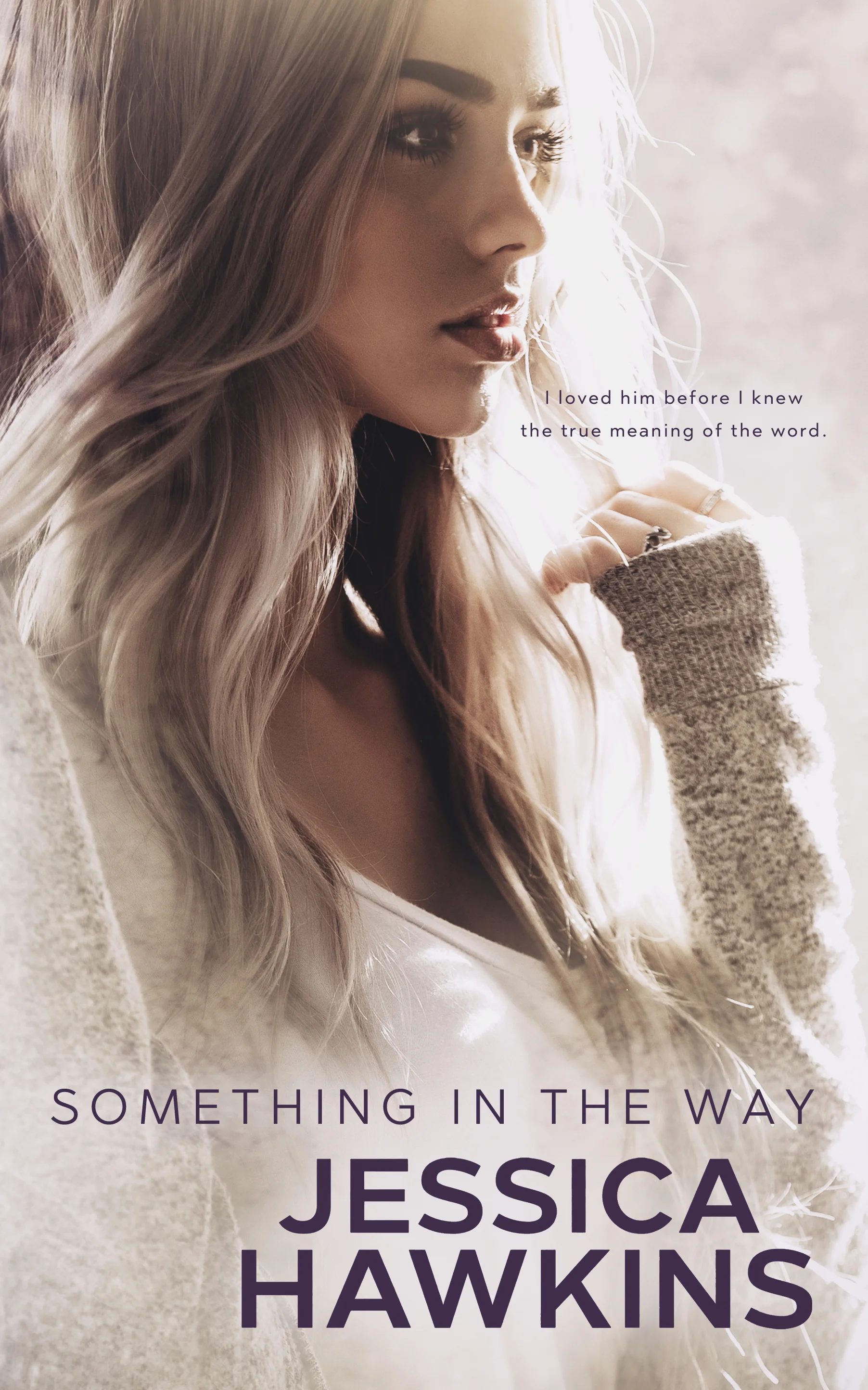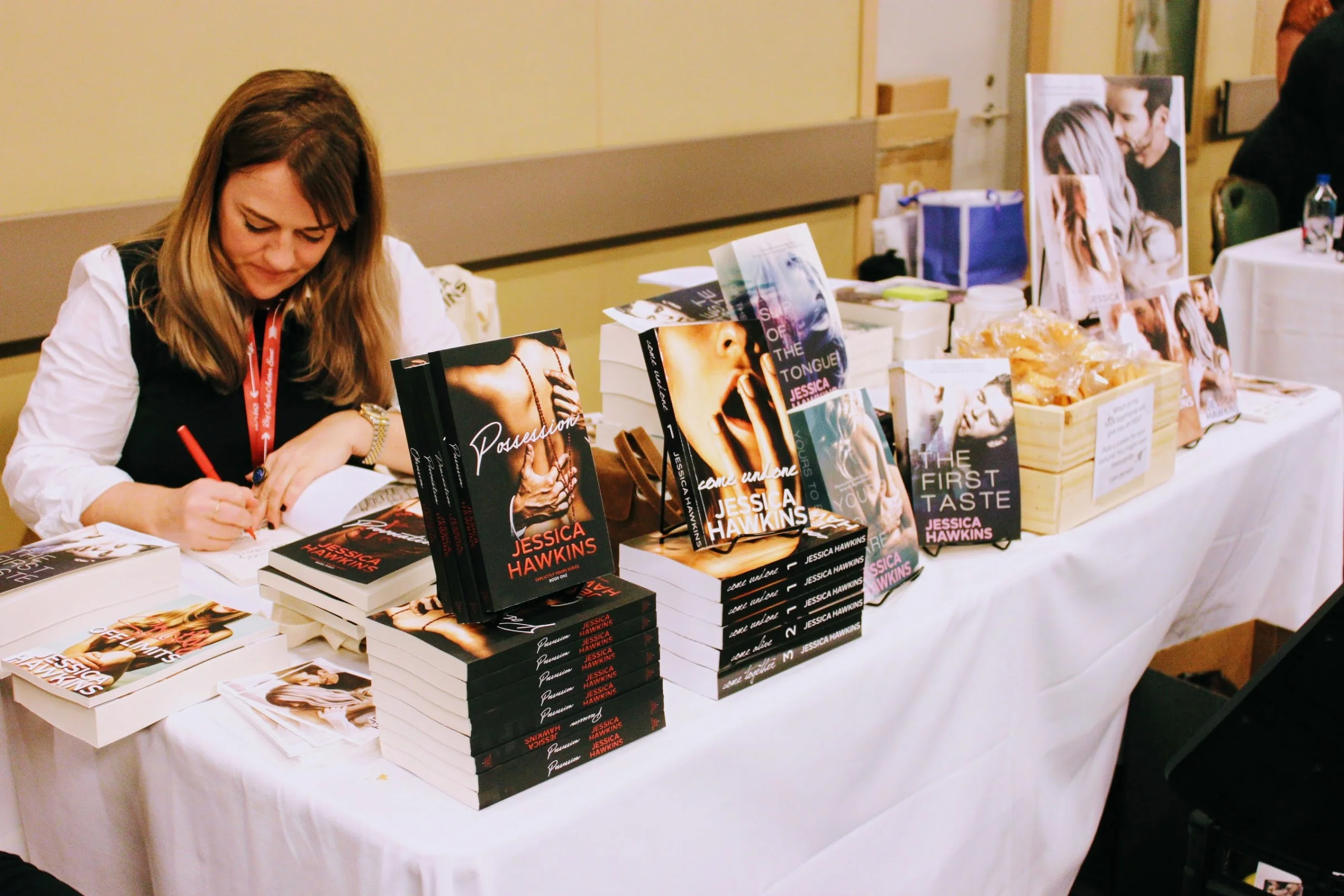Amazon best-selling author Jessica Hawkins recently published what she thought was a simple and fun question on social media: ‘Where are you from and have you read any of my books?’ The response moved her to tears when she realized how many readers had been affected by her work. Dubbed the ‘queen of angst’ for her provocative tales we talk to Jessica about guarding against ‘hermit’ mode, outsourcing for effectiveness and staying in touch with your writing goals.
Jessica Hawkins is a self-published author currently based out of New York City.
Like many in this industry, I started out writing the kinds of books I wanted to read! I have a weakness for stories that push boundaries, so I gravitate toward more unconventional or heavier topics than you typically find in the romance genre, such as infidelity or forbidden love. I recently published my thirteenth book in the five years I’ve been in this career.
What made you want to be a writer?
In my head, I’ve always been a storyteller, but I wasn’t sure what that meant until about five years ago. Though I received good marks in school for my work, I couldn’t stand mandated writing like essays or research papers. It wasn’t until I started reading in the romance genre that inspiration struck. I sat down at my computer and the words flowed. I’m also a big fan of film and TV. Capturing the stories that played out so clearly in my mind appealed to me.
What inspires you to write?
I find inspiration all over the place, but I’d say a large source of it is other books, art, movies, TV, nature—beautiful and moving things in general. I’m easily stimulated by other artists when I connect with their voice. Pieces that move me tend to show up in one form or another in my work, even if it’s unrecognizable to anybody but me.
Is there anything that has happened along your writing journey that you’d like to share?
I recently posted what I thought was a simple, fun question on social media and the result blew my mind: “Where are you from and have you read any of my books?” The response moved me to tears. Readers chimed in from all over the world and they had so much to say about what books of mine they’d read and how the stories had affected them. Indie publishing moves so quickly—sometimes I forget to stop and smell the roses, and that moment forced me to.
Do you have any advice for aspiring authors?
The best advice I can give sounds obvious and you’ve probably heard it before, but I can’t stress it enough: Write every day. Finish the book. Without that, you have nothing to edit, cover, promote, etc. To get more specific: try to gauge at the onset what it is you want readers to take away from your stories. Write that down and carry it with you as your career progresses. You’ll face a lot of decisions and hit a lot of turbulence along the way, so if you remember why you started writing and what it is you want to pass on to your readers, that will help when you come up against obstacles or big decisions.
My more actionable advice would be to invest in non-negotiable areas like editing and cover design, and go guerrilla-style where your strengths translate (at least until you’re established). I started out doing virtually everything on my own but I soon learned where I needed to outsource.
What do you think is the biggest marketing challenge for new authors?
For new authors, I think that would be visibility in an oversaturated market. That said, I think there’s always room for unique, well-written self-published books. There’s no end to the different takes on new and old tropes, so as long as you identify your voice early on (usually with the help of a qualified editor) and stay on message, you can carve out a following for yourself if you’re patient.
What methods of book marketing do you find the most effective?
When I first started out, social media was the most affordable and effective way for me to reach new readers. That remains true for me today because word of mouth is invaluable. I try to engage my audience on many different platforms, but the key is supporting and respecting your core readership. They’re your biggest champions and who keep you writing. My Facebook reader group and mailing list are great, and it’s important to keep in mind that those platforms won’t grow and function on their own. They need tending to and your readers will reciprocate the time and effort you put in to connecting with them.
How do you handle rejection as a writer?
I don’t. Ha! I don’t handle it well, I should say. It’s a sentiment that’s been beaten to death—you have to thicken your skin if you want survive any creative industry. But I find it’s not a bad thing to wear your heart on your sleeve too. After all, that’s why I started writing—to move others the way I’ve been moved by works of art, and it’s difficult to do that if I’m wearing a suit of armor half the day. Since I don’t submit my work to publishers, the greatest form of rejection for me comes direct from the readers. A method that works for me is not reading too many of my reviews so it doesn’t change the way I tell stories. Instead, my editor sorts through them and incorporates positive and negative feedback into future projects.
How do you deal with isolation, as writing is an inherently private exercise?
Isolation is a real and prevalent issue as a writer. It’s such a private and lonely profession, but I’ve always been a bit of a loner, so the issue becomes more how I avoid falling too deeply into hermit mode. I frequently work out of coffee shops (and try to incorporate that into my brand). When I need interaction or support, I’m lucky to have found some amazing author friends within this community who always seem to be there when I come up for air. They understand the agony and ecstasy of disappearing into the writing cave for weeks at a time and emerging emotionally drained. Not to mention my constant interaction with readers and bloggers helps me feel like I’m part of a community, or in a way, a neighborhood. It reminds me not only why I write, but for whom I write.
Is there anything else you’d like to share with aspiring writers?
People write for different reasons so remember to consistently check in with yourself to assess your goals—even if you have to literally schedule it on your calendar. Your needs and wants when you start out will be different than when you’re three or four books in, and they’ll likely change and grow pretty frequently. Whether your goals are for the short- or long-term, or if they’re income-oriented or purely to feed your soul, it doesn’t matter, as long as you continue to be honest with yourself about what they are and give them the space to change and exist.
You can find out more about Jessica Hawkins via her website and social media channels: Facebook and Instagram. Her books are available for purchase through Amazon.














